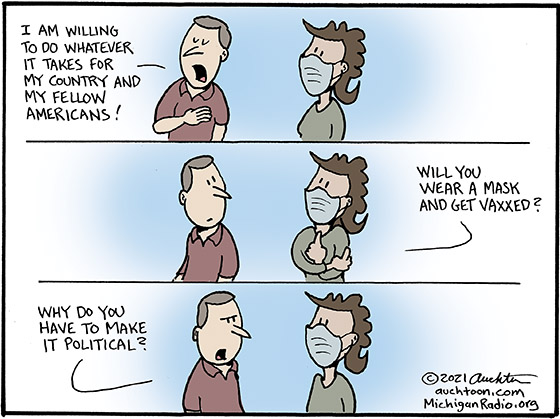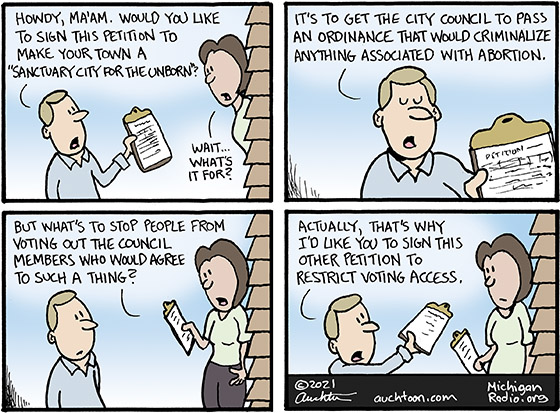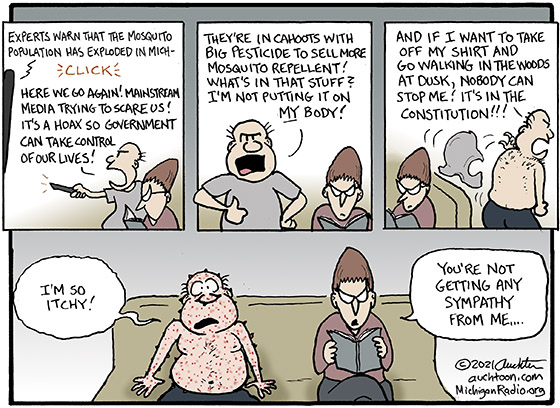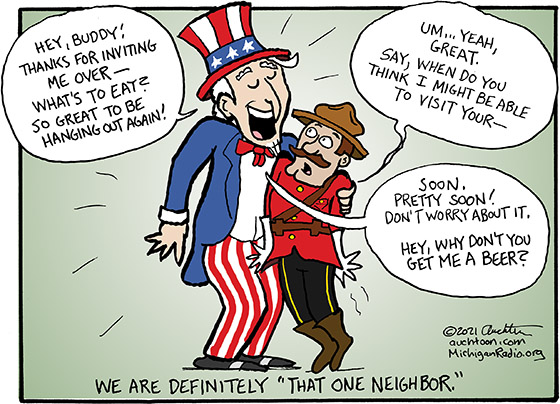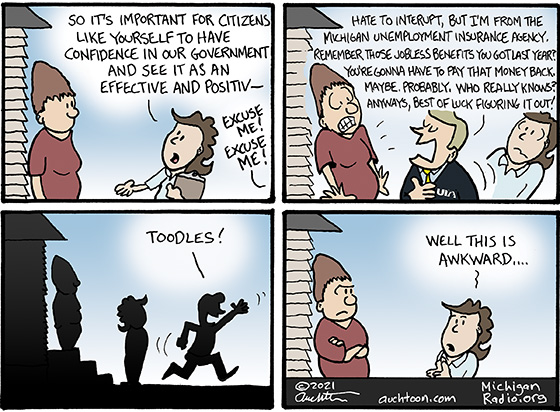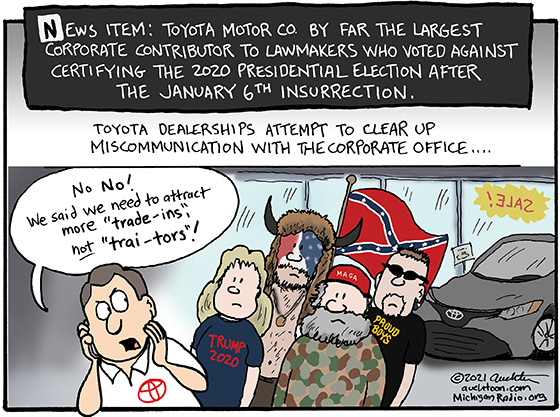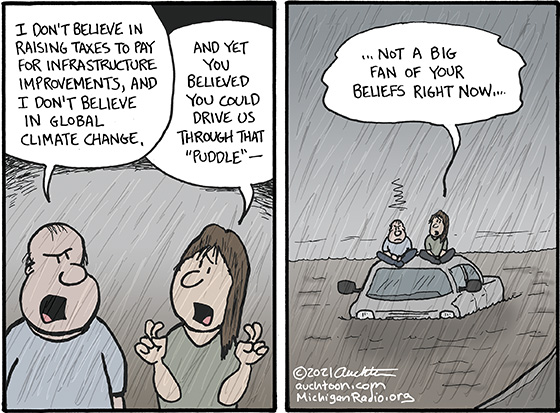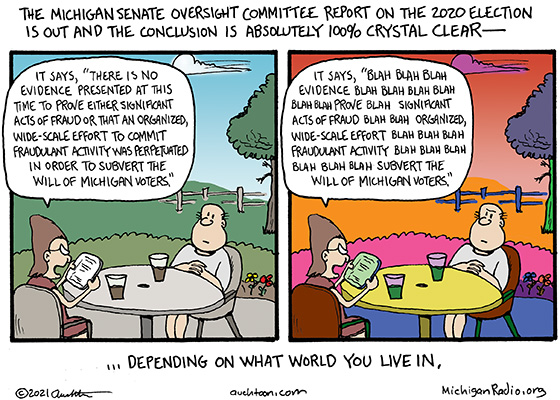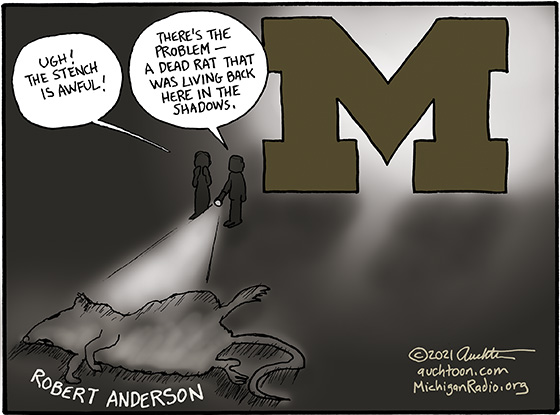C’mon Think People, Think!
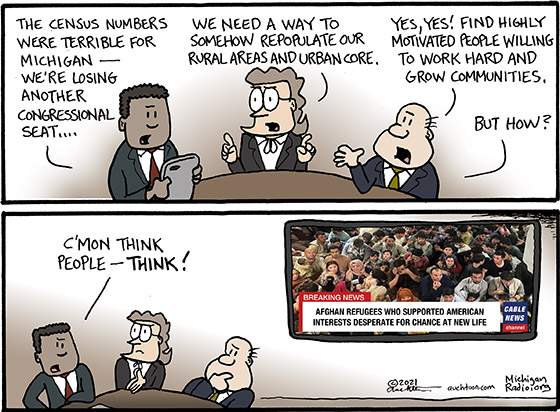
Details from the 2020 US Census were released last week, and while Michigan as a whole did better than the last decade, we didn’t do great. Meager growth in population was not enough to avoid losing a congressional seat. Equally important, low population growth means less federal support, which means less money for us. And while some slow-growth states like Kentucky seem to be adept at pulling in more resources than they contribute to these United States, that’s never been a core competency for Michigan.
What to do? What to do? Well, answers may lay in the stats. Let’s start on the rural side. All of the UP’s counties lost population (with Luce Country down 19.5%). Except for one — Houghton County, which managed to gain 2%, largely in thanks to the city of Houghton, which is home to my alma mater, Michigan Tech and the students it attracts.
There was an even wider variance among Michigan cities. Dearborn gained 12% while Flint dropped 20.7% of its population. In a more apples-to-apples comparison, the Detroit enclave of Highland Park lost 23.8% of its people, while neighboring enclave Hamtramck gained 26.8%.
What’s a common denominator? The counties and cities that gained did so by attracting immigrants — newcomers looking to establish new lives and grow communities, many not native-born US citizens, some refugees seeking a chance at a decent and safe life.
So how can Michigan best grow its population (I mean, before everybody gets thirsty and comes here looking for plentiful fresh water)? The same way we grew before: through waves of immigration and migration. And I can’t think of a group of people more eager and perfectly suited to become new Michiganders than the refugees currently motivated to escape from Afghanistan.
